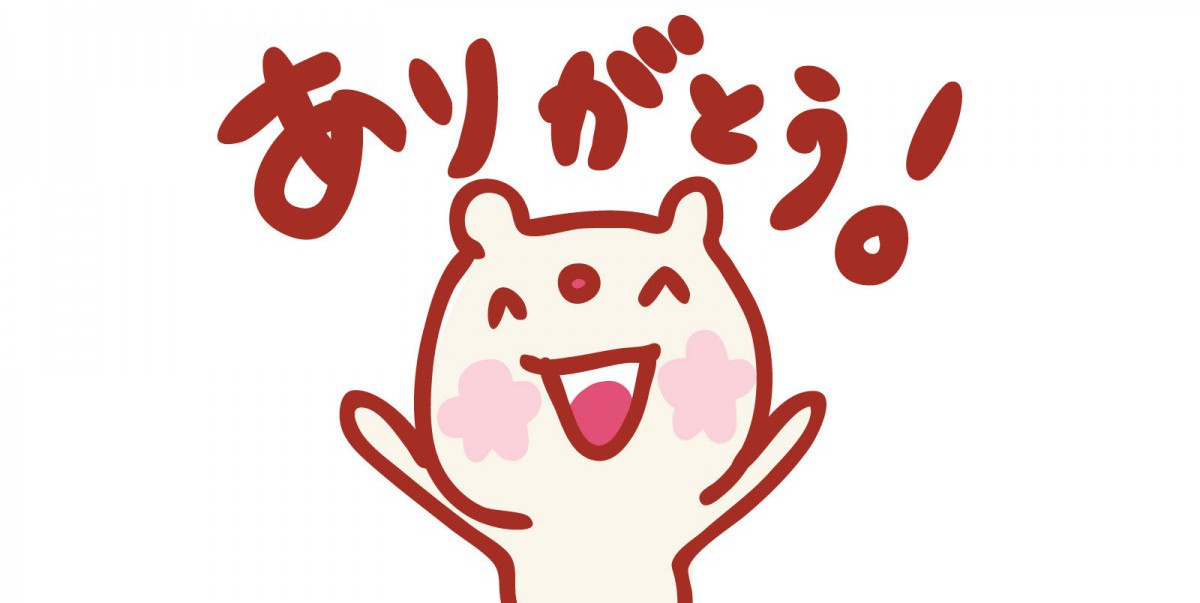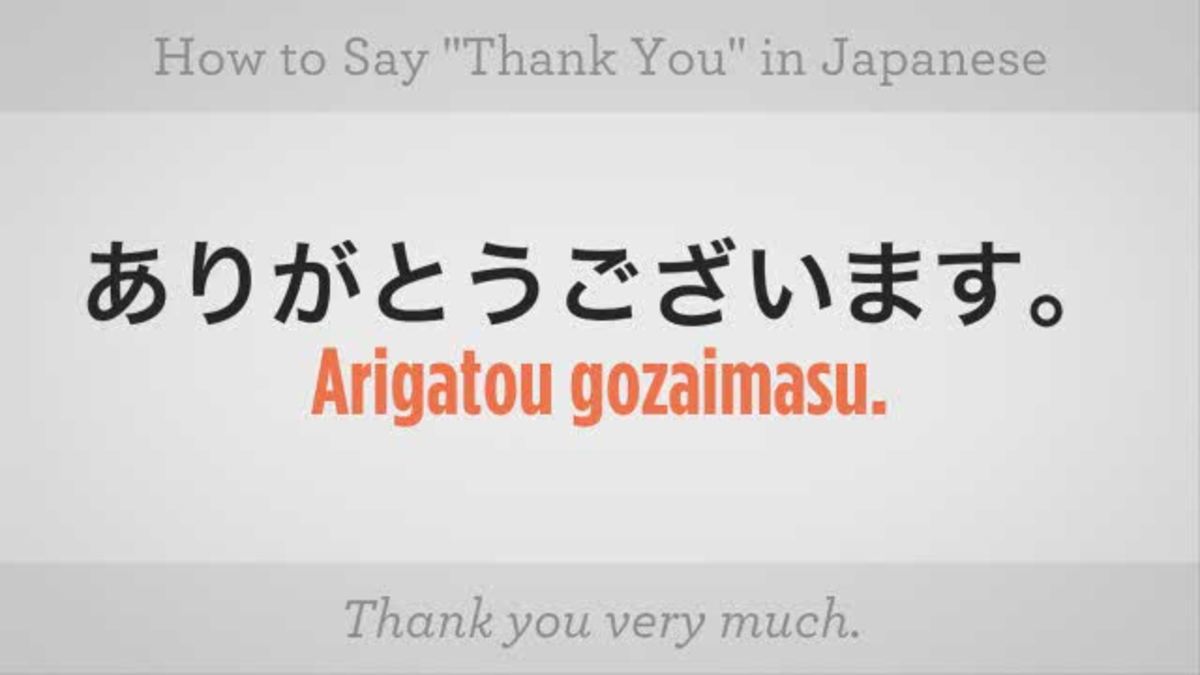Thank you in japanese language – Arigato: Expressing Gratitude in Japanese with Nuance and Etiquette
The Japanese language holds a rich tapestry of expressions to convey gratitude, each carrying its own unique shade of meaning and level of formality. Embark on a linguistic journey as we delve into the intricacies of “thank you” in Japanese, exploring its cultural significance, variations, and appropriate usage.
Definition and Meaning of “Thank You” in Japanese

In the Japanese language, the phrase “thank you” is typically expressed as “arigatō (ありがとう)”. The word “arigatō” literally translates to “I am obligated to you.” This reflects the deep cultural significance of gratitude in Japan, where expressing appreciation for acts of kindness is considered an important social norm.
Cultural Context of Gratitude in Japan
In Japanese culture, expressing gratitude is highly valued. It is considered impolite to accept a gift or favor without expressing appreciation. The act of saying “thank you” serves not only to acknowledge the other person’s kindness but also to strengthen the bond between them.
Therefore, it is important to express gratitude sincerely and respectfully.
Significance of Formality and Politeness, Thank you in japanese language
Japanese thank-you expressions vary depending on the formality of the situation and the relationship between the speaker and the recipient. In formal settings, more polite and respectful phrases are used, while in informal settings, more casual expressions are acceptable. It is important to use the appropriate level of formality to avoid causing offense.
Variations of “Thank You” Expressions

The Japanese language offers a wide range of phrases to express gratitude, each with its own nuances and levels of formality. Understanding these variations can help you convey your appreciation appropriately in different situations.
Generally, the level of formality in Japanese thank-you phrases is determined by the context and the relationship between the speaker and the recipient. Formal phrases are typically used in business settings or when speaking to someone in a position of authority, while informal phrases are more appropriate for casual interactions or among close acquaintances.
Common Thank-You Phrases
- Arigatou gozaimasu (ありがとうございます): This is the most common and versatile thank-you phrase, suitable for both formal and informal situations. It literally translates to “thank you very much” and is often used in everyday conversations.
- Domo arigatou (どうもありがとうございます): Similar to “Arigatou gozaimasu,” this phrase is also widely used and conveys a sense of sincerity and gratitude. It is slightly more informal than “Arigatou gozaimasu” but can be used in most situations.
- Kansha shimasu (感謝します): This phrase literally means “I appreciate it” and is commonly used in formal settings, such as business meetings or when expressing gratitude for a favor or service.
- Osoreirimasu (恐れ入ります): This phrase is used to express deep gratitude or humility, often when receiving a gift or a favor. It literally translates to “I am humbled” and conveys a sense of respect and appreciation.
- Arigatou kore kara mo yoroshiku onegaishimasu (ありがとうございますこれからもよろしくお願いします): This phrase is typically used to express gratitude for ongoing support or assistance. It literally means “Thank you and I look forward to your continued support” and is often used in business or professional settings.
Using Specific Words and Phrases
In addition to these common phrases, there are several specific words and phrases that can be used to convey different levels of appreciation:
- Taisou (大変): This word means “very” or “greatly” and can be added to any thank-you phrase to emphasize the speaker’s gratitude.
- Honni (本当に): This word means “truly” or “sincerely” and can also be added to a thank-you phrase to convey the speaker’s heartfelt appreciation.
- Osewa ni natte imasu (お世話になっています): This phrase literally means “I am in your care” and is often used to express gratitude for ongoing support or assistance. It conveys a sense of indebtedness and appreciation.
By understanding these variations and using the appropriate phrases, you can effectively express your gratitude in Japanese and show your appreciation in a respectful and appropriate manner.
Cultural Etiquette and Usage
Expressing gratitude in Japanese culture is deeply rooted in politeness and respect. The choice of expression and the accompanying etiquette vary depending on the context, the relationship between the individuals involved, and the formality of the situation.
Appropriate Settings and Situations
The appropriate use of different thank-you expressions depends on the setting and the nature of the interaction. In general, more formal expressions are used in business settings, while more casual expressions are used in informal situations.
- Formal settings:Business meetings, official ceremonies, interactions with superiors or elders.
- Semi-formal settings:Social gatherings, interactions with acquaintances or colleagues.
- Informal settings:Interactions with friends, family, or people of a similar age or status.
Importance of Tone, Body Language, and Gestures
When expressing gratitude in Japanese, it is important to pay attention to your tone, body language, and gestures. These non-verbal cues can convey respect and sincerity, and enhance the impact of your words.
- Tone:Speak in a polite and respectful tone of voice, even in informal situations.
- Body language:Maintain eye contact, bow slightly, and use appropriate hand gestures.
- Gestures:Avoid exaggerated or overly familiar gestures, as these may be considered disrespectful.
Cultural Norms and Customs
Japanese culture places great emphasis on humility and modesty. When expressing gratitude, it is important to avoid sounding too assertive or demanding.
- Use humble language:Use expressions that convey humility, such as “恐れ入ります” (sumimasen) or “お手数をおかけします” (ote-su-o-kake-shimasu).
- Avoid direct requests:Instead of directly asking for something, express your gratitude for the other person’s willingness to help.
- Return the favor:In Japanese culture, it is customary to return favors and show appreciation through actions, not just words.
Formal and Informal Usage
In Japanese, the choice of thank-you expression depends on the formality of the situation and the relationship between the speaker and the recipient. Formal expressions are used in professional settings, with superiors, or with people you do not know well.
Informal expressions are used in casual settings, with friends, family, or people you are close to.
The following table compares formal and informal Japanese thank-you expressions:
| Phrase | Translation | Usage | Examples |
|---|---|---|---|
| ありがとうございます。 (arigatō gozaimasu) | Thank you very much. | Formal | When thanking a superior, a stranger, or someone you do not know well. |
| ありがとう。 (arigatō) | Thank you. | Informal | When thanking a friend, family member, or someone you are close to. |
| どうも。 (dōmo) | Thank you. | Very informal | When thanking someone for a small favor or gesture. |
In general, it is better to err on the side of formality when choosing a thank-you expression. If you are unsure of the appropriate expression to use, it is always safe to use the formal expression.
Examples and Usage in Context

Japanese expressions of gratitude are diverse and depend on the formality of the situation. Here are some common scenarios and dialogues to illustrate their usage:
Formal Situations
- Expressing thanks to a superior or elder:ありがとうございます (Arigatō gozaimasu) – “Thank you very much.”
- Receiving a gift or favor:恐れ入ります (Osoréirimasu) – “I am very grateful.”
- Thanking someone for their time or effort:お忙しい中、お時間をいただきありがとうございます (Oisogashii naka, o jikan wo itadaki arigatō gozaimasu) – “Thank you for taking the time out of your busy schedule.”
Informal Situations
- Expressing thanks to a friend or family member:ありがとう (Arigatō) – “Thank you.”
- Thanking someone for a small favor:どうも (Dōmo) – “Thank you.”
- Thanking someone for a compliment:恐縮です (Kyōshuku desu) – “I am humbled.”
Final Conclusion
Navigating the nuances of Japanese thank-you expressions is a testament to the depth and complexity of the language. By embracing the cultural context and understanding the subtleties of each phrase, we can effectively convey our appreciation and build meaningful connections in Japanese society.
FAQ Resource: Thank You In Japanese Language
What is the most common way to say “thank you” in Japanese?
Arigato gozaimasu is the most widely used and versatile thank-you expression, suitable for both formal and informal settings.
How do I express deep gratitude in Japanese?
For heartfelt expressions of appreciation, consider using phrases such as “Arigato gozaimashita” or “Osoreirimasu,” which convey a profound sense of gratitude.
What are some informal ways to say “thank you” to friends?
In casual settings, you can use expressions like “Arigato” or “Domo,” which are more relaxed and appropriate for close relationships.